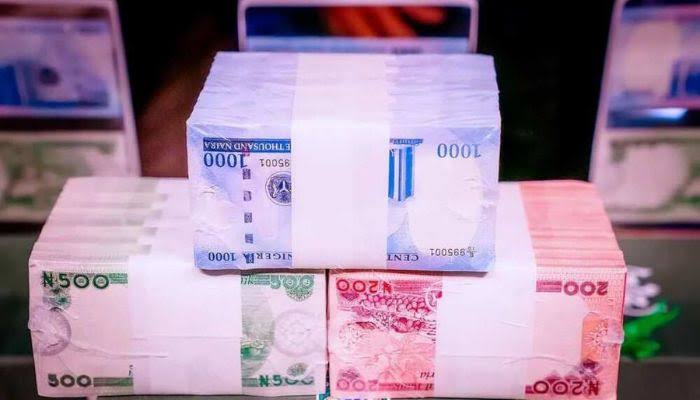
Nigeria’s broad money supply climbed to N114.22tn in March 2025, defying the Central Bank of Nigeria’s (CBN) aggressive monetary tightening, which included raising the Cash Reserve Ratio (CRR) to a historic 50 per cent.
According to the CBN’s latest money and credit data, the March figure marks a 24 per cent year-on-year increase from N92.19tn in March 2024. On a month-on-month basis, the money supply rose by 3.2 per cent from N110.71tn in February.
The surge in money supply was largely driven by a significant increase in net foreign assets, which jumped by 38.9 per cent to N45.17tn, suggesting robust capital inflows and potential gains from currency revaluation. However, net domestic assets fell by 11.7 per cent to N69.05tn, reflecting tighter liquidity in the local financial system.
Despite the CBN’s efforts to contain inflation and limit liquidity through the world’s highest CRR, Nigeria’s monetary base continues to expand. The growth in money supply is likely supported by external factors such as rising foreign asset holdings and government borrowing, which may have outweighed the impact of domestic tightening.
In the first quarter of 2025, M3 money supply rose by 2.8 per cent—from N111.11tn in January to N114.22tn in March.
The CBN data also reveal that currency outside the banking system grew to N4.6tn in March, accounting for 91.9 per cent of the N5.00tn total currency in circulation. This marks a 26.7 per cent increase from N3.63tn recorded outside banks in March 2024, when the total currency stood at N3.87tn.
This preference for cash has been consistent through Q1 2025, with N4.74tn (90.5 per cent) outside banks in January and N4.52tn (89.6 per cent) in February. The continued dominance of physical cash reflects deep-rooted structural challenges, particularly in Nigeria’s informal economy where access to banking and trust in digital systems remains limited.
Despite ongoing campaigns for a cashless economy and financial inclusion, a large share of Nigerians continues to rely on cash. Economic pressures, infrastructure gaps, and behavioural tendencies—especially amid rising prices—have reinforced the preference for physical currency as a more immediate and flexible medium of transaction.
Data from the National Bureau of Statistics show that headline inflation rose to 24.23 per cent in March from 23.18 per cent in February, with month-on-month inflation accelerating by 3.90 per cent.








